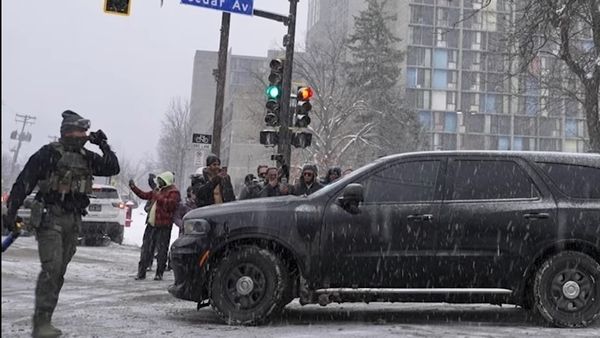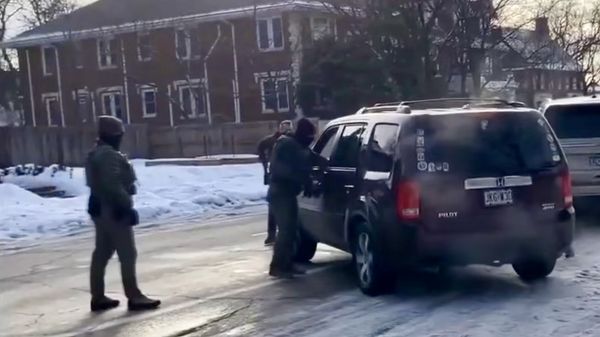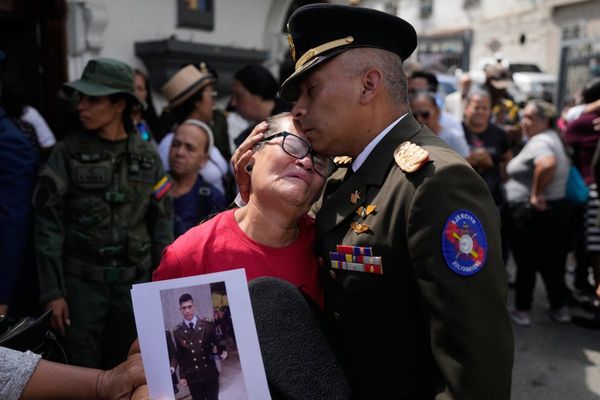
Victorian MPs and two councillors received large amounts of money and political donations to advance the interests of the millionaire property industry identity John Woodman, an anti-corruption investigation has found.
The state’s Independent Broad-based Anti-corruption Commission found two City of Casey councillors, Geoff Ablett and Sameh Aziz, accepted hundreds of thousands of dollars in undeclared payments to further Woodman’s interests within council processes.
It found that the former Labor MPs Jude Perera and Judith Graley also received financial support for their election campaigns before they sought to influence the then planning minister and other government decision-makers to support a rezoning proposal that would have generated a windfall for Woodman and some landowners.
The Operation Sandon report confirms that the premier, Daniel Andrews, gave evidence to the investigation but Ibac has made no adverse findings about him.
The report said it had accepted evidence that the premier had asked a lobbyist to pass on his regret about the delay of a rezoning decision to Woodman, which Andrews said he had no recollection of doing.
It also said the current MP Pauline Richards received donations from Woodman for her campaign but accepted that she had done nothing to further his interests.
The investigation lays bare the extent Woodman went to achieve the desired outcomes for his clients at state and local government levels, including engaging a lobbyist to transport cash payments to a councillor and secretly creating and funding a resident’s action group that lobbied in support of his business interests.
“Ibac uncovered a web of well-orchestrated strategies designed to manipulate Casey council decision-making processes, buy influence and undermine the effectiveness of the Victorian planning system in exchange for certain benefits,” said the report, tabled in parliament on Thursday.
“Ibac’s investigation laid bare corruption risks in planning, political donations, lobbying and council governance.”
Ibac said there were “more than 180 transactions, totalling $969,968, [that] were paid from accounts and entities associated with Mr Woodman to the two major political parties” via “donations, membership fees and tickets to attend fundraising events”.
The watchdog is prohibited from making any finding that a person is guilty, has committed a criminal offence or should be prosecuted for such an offence.
The report makes 34 recommendations, including creating a taskforce that considers measures to crack down on corruption risks associated with windfall gains resulting from changes in land use and the potential to ban donations from property developers. It also recommends overhauling lobbyist regulation.
The report, which shows the corruption vulnerabilities in planning decisions, will probably be used to bolster an Andrews government major housing plan to boost density in inner and middle suburbs, reported to include stripping planning powers from councils.
It found Aziz and Ablett promoted the interests of Woodman and his clients on council in exchange for payments and other donations, and both councillors failed to declare conflicts of interests on numerous occasions.
“Many of the elaborate financial arrangements between Mr Woodman and these two councillors were designed to conceal the nature or source of the funds and to give them the appearance of legitimacy,” the report said.
Between 2018 and 2019 Aziz received about $600,000 from Woodman and entities controlled by him, Ibac found. In return, he promoted Woodman’s interests in relation to a proposal to rezone land in Cranbourne West to become residential, including by coordinating the campaigns of a group of candidates at the 2016 council elections who supported the proposal, the report said. The campaigns were secretly financed by Woodman.
Ablett received more than $500,000 in payments and other financial benefits from Woodman between 2010 and 2019 in exchange for promoting the developer’s interests on council, Ibac found. This included a $40,000 donation received via the Liberal party.
In his submission to Ibac, Ablett asserted that: “It is incorrect to state that Mr Ablett put his private interests ahead of those of the community. Mr Ablett consistently prioritised his public obligations as an elected representative for the benefit of his constituency.”
Woodman also disputed findings against him.
“There is no evidence that the work of Mr Woodman as a consultant was to improperly influence, ie dishonestly or unlawfully, or unduly influence decisions by council via any or all the mechanisms alleged,” his submission to the investigation’s draft findings said. “This is a false statement.”
Ibac concluded no other Casey councillors received direct benefits in exchange for promoting Woodman or his clients’ interests on council but found that two were “improperly influenced” by Woodman’s support, such as donating to election campaigns and failed to meet their obligations as a public official.
Woodman also worked with Aziz to draft and move motions in favour of an amendment to a development permit for the Pavilion Estate, which was subsequently approved.
During its investigation, Ibac faced criticism after the former Casey mayor Amanda Stapledon took her life in January 2022, days after the watchdog sent her the draft report of the investigation.
Ibac referred to her as “Councillor A” and said, alongside Aziz and Ablett, she was “instrumental in seeking to influence Casey council processes and decisions” in favour of the rezoning proposal.
The rezoning amendment was rejected by the planning minister in 2020. That year, the council was sacked by the state government and replaced with a panel of administrators.
The report concluded that Graley, Perera and his staff had sought to influence the then planning minister over the rezoning proposal.
When he gave evidence, Perera said he believed he was acting in the best interests of his constituents and that the donations did not create a sense of obligation.
During her examination, Graley denied knowing that Woodman donated $20,000 to her campaign and said: “I was never promoting Mr Woodman’s interests.”
Andrews’ evidence given to Ibac, given in a private hearing, includes an acknowledgment that he attended many fundraising functions and a 2017 lunch at a restaurant with Woodman. The lunch arose from a winning bid of more than $10,000 at a political fundraising event.
“However, during examination the premier stated that he had no recollection of Mr Woodman or his associates raising planning matters with him,” the report said.
The report references an intercepted conversation between Woodman and an associated lobbyist, Philip Staindl, in March 2019 where he referenced a conversation with the premier at a function the month prior.
Ibac said Staindl had said that the premier asked him to apologise to Woodman for the planning minister’s referral of the rezoning decision because of allegations of corruption “by a journalist who was an ‘arsehole’” and praised the developer’s contributions to the Labor party. Ibac said Staindl had given evidence that he could not recall the conversation with “absolute certainty” and may have embellished it when talking to Woodman.
In a private hearing, Andrews did not dispute that he may have had some conversation with Staindl at the function in February 2019. He said he knew Woodman and was aware of his donations to the Labor party.
Ibac found that “Woodman’s and his associates’ engagements with senior members of the Victorian government provide another illustration of the opportunities for privileged access that they were able to gain in relation to planning matters.”
• In Australia, the crisis support service Lifeline is 13 11 14. International helplines can be found at befrienders.org







